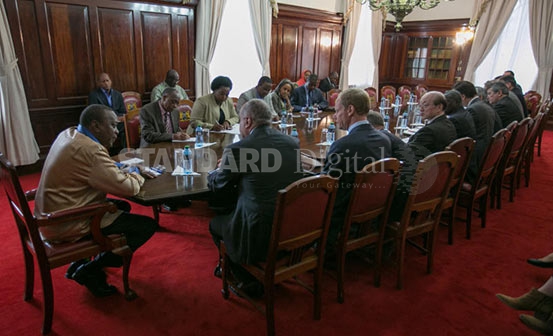×
The Standard e-Paper
Home To Bold Columnists

President Uhuru Kenyatta yesterday told a United Nations Security Council team that the Government’s decision to close the Dadaab refugee camp was as a result of national security concerns.
During a meeting a State House, the President and the UN team discussed the African Union Mission to Somalia, where troops contributed by Kenya, Uganda, Burundi, Djibouti, Ethiopia and Sierra Leone are fighting the Al Shabaab militia.